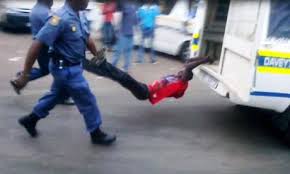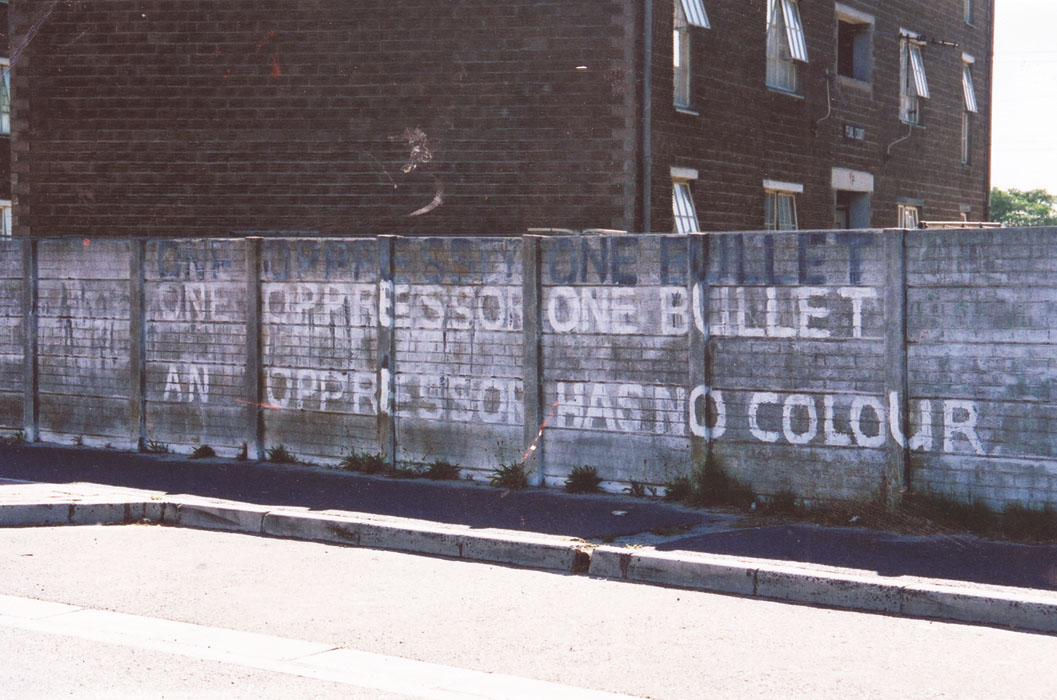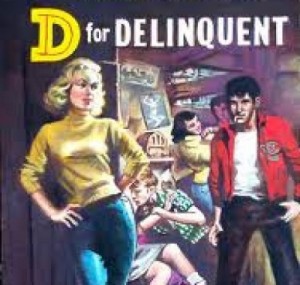These are taken from emails sent to me by the producer of Love Letters Journal.
Another man done gone
(March 2013)
Those following the news of this country might have noticed a recent headline: ANOTHER KWEREKWERE KILLED BY COPS. The fact before being murdered in a cell he was filmed being tied to the back of a police van and dragged along the street as it drove off puts this in the news; the fact that cops were acting like this openly in front of dozens of onlookers shows how ‘new’ this news really is.
At Lindela ‘Repatriation Centre’ (= Deportation camp where all those deemed by the authorities to be ‘illegal’ are interned, tortured, extorted, insulted, and finally: deported, released or killed) a handful die every year – almost every month. An old Minister of ‘Home Affairs’ said – a long time ago – “If there are any deaths as a result of torture, I want a full report.” Presumably ordinary maiming, paralysis, blinding and other petty injury resulting from torture is not worth wasting the ink and effort of important bureaucrats who, after all, have to supervise repression throughout the whole of South Africa.
With this as the attitude of the people in charge; it is of course no surprise that ordinary murder by cops is not considered news-worthy. There are more deaths in police custody now than there were during the state of emergency in the ’80s. How many more never make it to the cells — murdered by the defenders of civilisation in the line of duty? How many do the forces of law and order murder with preventable disease and starvation? How many are forced to die hustling or driven to madness and suicide? How many are condemned to a living-death day after day, confined to an existence of planned misery in a coffin of dead-time grown to encompass each waking moment? In what way was Mido Macia’s death exceptional?
Like countless others, I too have been punished by the state for refusing to surrender my own dignity to its divine authority; I too have been forced to the floor by a gang of police; I too have struggled while the black boots of black boers pinned my hair, neck, chest, arms and legs to the pavement; I too have felt grubby hands forcibly enter my person as if I were a thing; I too have cried out in anguish; I too have resisted being detained, interrogated, searched, and manhandled at the whim of thugs in uniform. If my accent happened to be wrong, or if there were not as many wealthy people around; I too might have ended up dead in a jail cell: a cadaver (the perfect citizen, the perfectly submissive political subject) no longer around speak blasphemies to you or the cops.
Why should it be any different? In a world governed by dirt — where scum rises to the top; it is natural for pigs to root as they please. Nothing to see here. Nothing to report. Do not block the traffic. Move along.
We could modify the Honourable Minister’s words to formulate the policy of news editors (and the pseudo-critical commentators of the intelligentsia whose tongues trail behind every public spectacle): “If there are any deaths caught on camera, I want a full report”. If not, not. No wonder then that in Alabama they have a blues goes
Another man done gone:
Another man done gone.
Another man done gone:
This ‘justice’ just a con.
Another man done gone.
I never knew his name:
I never knew his name.
I never knew his name:
It kills me just the same.
I never knew his name.
(Some alterations have been made to keep lyrics up to date, but the spirit is the same. Curious readers can hear the original here: www.youtube.com/watch?v=749523cHwyc)
The heap of corpses grows day by day, so vast is seems to be without beginning or end.
Marikana, Kronstadt, Macia & Tatane, Sacco & Vanzetti, Soweto & Shanghai…
Who said we left Jim-Crow? Occupation? Serfdom? Apartheid? Slavery?
They may mow us down under their lies now, but the day is coming when we will make them choke on their law-codes, their Constitutions and their I.D. papers.
***************************
The following notes were completed in November 2012:
…It would be mistaken to draw too neat parallels with the past… analogous situations … in SA during the 1980s when workers made (and sometimes won) similar demands. The struggles of the 80s took place at a time when a century old system of “primitive capital accumulation”, was undergoing fundamental changes; today the situation is somewhat different, though perhaps even more significant.
With that said, there is still some value in putting the glib condemnations of ‘unrealistic’ wage demands under closer scrutiny.
Capitalists and their stooges the world over often complain about how workers are ‘overpaid’; those forced into an existence of lifeless drudgery are constantly exhorted to be grateful for their ‘priveledged’ conditions of exploitation. A recent newspaper report stated that “South Africa ranks worst among 144 countries in terms of employer-labour relations and next to worst in terms of overpaying unproductive workers, according to the World Economic Forum’s Global Competitiveness Report.”
The newest factor, particular to labour struggles, has been the increasingly common demand for doubling or tripling of wages. Nowhere has this demand come close to being won, but its appearance seems to mark both a definite break from the ritualistic union-controlled strikes over wage negotiations as well as a way to shunt wages from the mundane realm of ‘quantity’, where ankle-cuffs shackle the players into predictable roles and the only thing to change are superficial the details of daily domination, into the tricky territory of ‘quantity’ where the ground underfoot is liable to break open and basic assumptions are thrown into question.
Notwithstanding the publications of bourgeois ideologues whose opinions are under no obligation to apprehend real life, no accurate account of wages in the country can ignore the fact that each miner in South Africa directly or indirectly supports 8 – 10 other people. With half the workforce of the country out of a job, the wages of those ‘overpaid & unproductive’ workers are quite often the only thing standing between millions of South Africans and starvation. The sycophants of slave-owners have, of course, never let reality interfere with their ideology; our attempts to communicate simple truths in their despite has value (if it does) solely due to the ability of such unquestioned bullshit to legitimise the illegitimate.
When those such as Desmond Tutu who — due to their saintly costumes, have some influence among the very workers and their dependants being slandered from all sides — proceed not only to condemn miners massacred by police bullets but to spit on their graves by stuffing
disgustingly insulting words in their mouths such as “Under apartheid, we faced daily battles for the right to gather, to protest and to march. Now that these rights are enshrined in our law, we abuse them. When we march, we demand, we destroy and we loot. We care not whether our demands are reasonable, or what actions we take.” (http://www.iol.co.za/news/tutu-speaks-on-marikana-massacre-1.1366555#.UtLdsUW8kzQ )
…When such people can act this way completely unchallenged, continuing to pose as champions of the oppressed, it is difficult to remain silent. In this sense, getting to the bottom of things and communicating one’s findings without fear can act as a form of real solidarity — provided this is not done uncritically. After all, each proletarian has to deal with more or less amounts of the same bullshit. As someone working as a human-scanner in an office environment, I face all sorts of rubbish about how I should consider myself ‘lucky’ that I don’t have to do the job of the lady who cleans our office — and with unemployment as rampant as it is she in turn is ordered to be grateful that she has any job at all….
If you are looking for a more comprehensive survey you could check out “Marikana: A Point of Rupture?” on the Insurgent Notes website. The author says much that is obvious in a style much ado about academic arse-licking [and a content too fixated on appealing to, influencing and changing “the Left”, as if “The Left”, particularly in South Africa, hadn’t long been part of the problem – Sam’s note] but it has the merit of marshalling the facts and putting them into a fairly coherent perspective.
My own notes only put the most significant characteristics of the current struggles in a more general form, primarily:
-
A tendency towards direct democracy, with a concomitant rejection of electoral politics in the townships and union politics in the workplace
-
The growth of practices such as direct delegation from mass assemblies
-
Direct action bypassing the ‘appropriate channels’ set up to contain dissent
-
The continual demand for participatory decision-making with fierce resistance when this is seen to be absent seem to me ample evidence for the growing dissatisfaction with mediated representation of all sorts.
Many of the characteristics often manifest in a single situation: the rejection of representation in townships giving rise to election boycotts such as in the slogan ‘no land no house no vote’, direct action in occupations and protests, democracy practiced through independent organisations such as abahlali basemjondolo & the AEC, etc;
In the workplaces it takes the form of wildcats, physical attacks on union bureaucrats (president of NUM lost an eye after being stoned by heckling workers a few years ago), and co-ordination of independent strike committees (see “Dear Friend and Comrade” email below).
The strikes at Impala platinum, Toyota and the factories subcontracted to supply parts, Goldfields, etc were all triggered by decisions made by management (with tacit or explicit approval of unions) to give selective increases to sections of the workforce in short supply; the refusal of such moves based on egalitarian impulse in both the content (for uniform increases) and form (for participation in decision making) by the workers involved.
This rejection arises precisely because the ‘appropriate channels’ designed to contain dissent have after two decades of stagnation and regression finally proven their uselessness to growing numbers of people. More importantly the existing structures of recuperation have proven an active (often violent) impediment to those who are making moves beyond their confines and, as increasingly intolerable conditions drive more and more to independent action, social contestation is bound to increase until a crisis is reached leading either to a revolutionary resolution or the establishment of a new more effective system of containment.
The recent riots against police in the Western Cape township of Hawston (http://www.iol.co.za/news/crime-courts/chaos-as-town-declares-war-on-cops-1.1417591#.UKJp86NRrBo ) are a welcome signal that people are beginning to fight back against the increasing repression resorted to by a bourgeois order whose more diffuse spectacle has increasingly failed to enforce submission. Similarly, current the farm-worker uprising in De Doorns ( http://ewn.co.za/2012/11/13/De-Doorns-farmer-protests-spread and http://ewn.co.za/2012/11/14/Violence-erupts-in-W-Cape-farming-town) and surrounding areas by one of the most vulnerable sections of the proletariat (many of whom live on their bosses property and stand to lose their homes when fired, and many more of which are undocumented migrants threatened by deportation) indicate that the contagion of rebellion, though it may temporarily die down in one sector, must needs flare up somewhere else even more fiercely than before.
Often several, if not all, above-mentioned characteristics will be expressed in a single situation, such as the February strike at Implats triggered by a unilateral decision to implement wage increases for a fraction of the workforce while excluding the rest.
We are still a long ways-off from our revolution but recent events have made the possibility more palpably real than any time since I was born.
http://libcom.org/news/self-organised-strikes-mines-farms-south-africa-15112012
Dear Friend and Comrade
We have formed independent workers committees on a number of mines in
South Africa. At the moment there is a strong effort to crush this
independent movement. Thus we approach you for solidarity:
1. Publicise the struggles of the independent workers committees
2. try to raise fund for the committees ( we are busy opening up an
account but it is possible to send us in the meantime)
3. Promote workers actions in solidarity with us.
Note our struggle is not just for mineworkers but for the whole masses
in Africa. We need to travel to various mines, we have people who are
searching the hospitals (those injured at Amplats on Tuesday 30 Oct
are scattered in hospitals over a wide area; those injured on Sat 27
Oct are taken far from their homes, hidden); the mine committees need
to meet; we need resources to travel to other parts of Africa.
We are committed to raise our own funds, but now, after 2 and a half
months, our pockets are more than empty, there are holes in them.
any solidarity is welcome. can someone help us with a website?
we salute you
there is no force on earth that can divide us.
yours in struggle
BS
for the mineworkers committees
http://www.moneyweb.co.za/moneyweb-south-africa/one-dead-in-south-africas-farm-riots?sn=2009+Detail
See also: South Africa: Now & Then



Leave a Reply